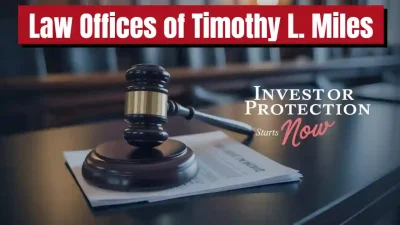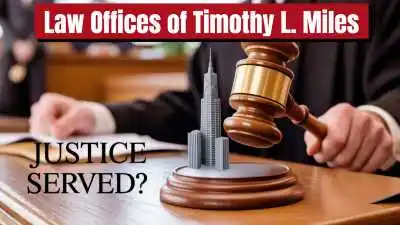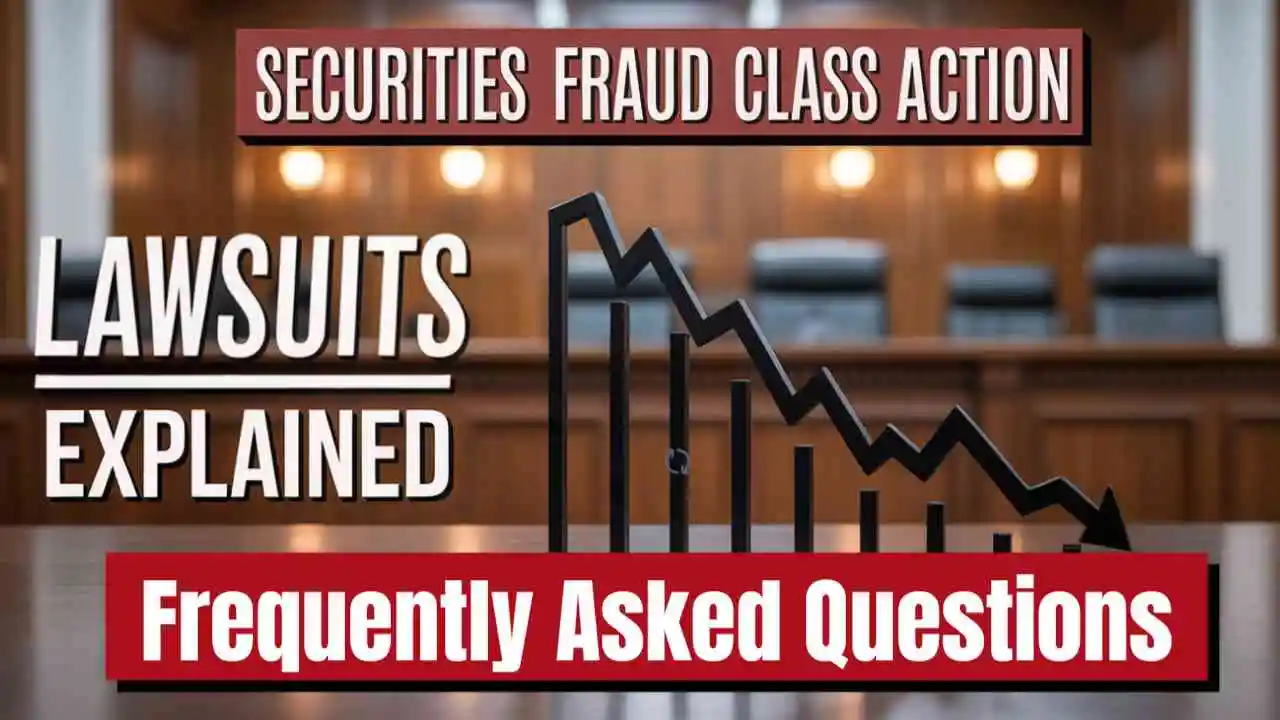
1. What Are the Rules and Regulations for the SEC and Major Securities Laws in Securities Litigation?
The U.S. Securities and Exchange Commission (SEC) is a federal agency responsible for enforcing laws and regulations governing the securities industry, thereby ensuring market integrity and protecting investors. The SEC oversees securities exchanges, brokers, dealers, investment advisors, and mutual funds to promote fair dealing, the disclosure of important market-related information, and to prevent fraud. One of the key rules is the requirement for public companies to submit periodic financial statements (e.g., Form 10-K, Form 10-Q) that provide a comprehensive overview of their financial condition. These disclosures are fundamental to maintaining transparency and allowing investors to make informed decisions.
Securities litigation is a critical mechanism through which the SEC enforces compliance with these regulations. This form of legal action can be initiated by the SEC itself or by private parties through securities class action lawsuits. Securities class action suits typically arise when there are allegations that a company has made false or misleading statements that have negatively impacted its stock price, causing financial harm to investors. These lawsuits aim to recover damages on behalf of affected shareholders and often lead to substantial settlements.
The SEC also has specific rules regarding insider trading, which prohibit company insiders, such as executives and employees, from trading based on non-public, material information. Violations of these rules can result in significant penalties, including fines and imprisonment. Furthermore, the SEC enforces regulations under the Sarbanes-Oxley Act of 2002, which was enacted in response to major corporate scandals such as Enron. The Act imposes stringent requirements on corporate governance and financial disclosure, including mandating that CEOs and CFOs certify the accuracy of financial reports.
Another important area under SEC oversight involves the registration and regulation of securities offerings. Companies must register their securities with the SEC before they can be offered for sale to the public unless an exemption applies. This registration process includes providing detailed information about the company’s business operations, financial condition, and risk factors. The goal is to ensure that investors have access to essential information before making investment decisions.
In conclusion, the SEC plays a vital role in regulating the securities markets through a comprehensive framework of rules and regulations designed to protect investors and maintain market integrity. Securities litigation, including securities class action lawsuits, serves as a crucial tool for enforcing these regulations and holding entities accountable for violations. Through continuous oversight and enforcement actions, the SEC strives to foster a fair and transparent financial environment that supports investor confidence and market stability.
2. What Is the Trust Indenture Act of 1939 in Relation to Securities Fraud Class Action Lawsuits?
The Trust Indenture Act of 1939 is a significant piece of legislation in the United States that governs the issuance of debt securities, such as bonds. Its primary purpose is to protect investors by ensuring that issuers of these securities adhere to certain standards and obligations. This act requires that any bond issued must be accompanied by a formal agreement, known as an indenture.
This indenture outlines the responsibilities and duties of the issuer and establishes a trustee to act on behalf of the bondholders, ensuring that their interests are safeguarded. The Trust Indenture Act of 1939 was a response to the widespread financial abuses witnessed during the Great Depression, aiming to restore investor confidence in the securities market.
One of the critical aspects of the Trust Indenture Act of 1939 is its role in preventing securities fraud. By mandating detailed disclosure and adherence to specific provisions within the indenture, the act helps to mitigate risks associated with fraudulent activities. It requires transparency and accountability from issuers, which is crucial in maintaining the integrity of financial markets.
In cases where there are violations of these standards, affected investors may resort to securities fraud class action lawsuits. These lawsuits allow investors to collectively seek redress against issuers or other parties that have breached their obligations under the act, providing a legal pathway for recovering losses incurred due to fraudulent practices.
Furthermore, the Trust Indenture Act of 1939 empowers the SEC to oversee and enforce compliance with its provisions. This regulatory oversight ensures that issuers maintain high ethical standards and operate within the legal framework established by the act.
Overall, the Trust Indenture Act of 1939 plays a pivotal role in promoting transparency, accountability, and investor protection in the bond market, thereby contributing to the stability and reliability of financial markets in the United States. Through its structured approach, it continues to be a cornerstone in safeguarding investors against potential malfeasance and fostering trust in the issuance of debt securities.

3. What Is an Injunction?
An injunction is a legal order issued by a court that requires an individual or entity to either perform a specific act or to refrain from performing a particular act. This judicial remedy is often sought to prevent harm or to maintain the status quo until a final decision is made in a case.
Injunctions can be temporary, such as a preliminary injunction which is issued at the outset of a lawsuit to provide immediate relief, or permanent, which is issued as a final judgment in a case.
The purpose of an injunction is to provide equitable relief, which means it aims to prevent unjust outcomes that cannot be adequately addressed through monetary compensation alone.
In the context of securities litigation, an injunction might be sought by plaintiffs to halt certain actions by the company that could cause further harm to shareholders or the public. For example, if the lawsuit alleges that the companay engaged in misleading practices or failed to disclose critical information, an injunction could prevent the company from continuing such practices during the litigation process. This ensures that any potential damage is mitigated while the legal proceedings are ongoing.
The use of injunctions in securities litigation is crucial as it protects the interests of all members of the class and ensures that justice is served efficiently and effectively.
Injunctions play a vital role in the legal system by providing immediate relief and preventing irreparable harm. They are an essential tool for maintaining order and fairness in legal disputes, ensuring that actions taken by parties do not unjustly impact others while a case is being decided. Whether in high-profile securities litigation or other civil matters, injunctions help safeguard rights and uphold the integrity of judicial proceedings.
4. What Are Governance Reforms in a Securities Class Action?
Governance reforms in a securities class action refer to the changes implemented within a corporation to enhance its corporate governance structures and practices following a securities litigation. These reforms are often part of the settlement agreements reached in securities class actions, where plaintiffs allege that a company and its executives have violated securities laws, leading to financial losses for investors. The primary goal of these reforms is to mitigate the risk of future misconduct, improve transparency, and restore investor confidence.
In the context of a securities class action, governance reforms can include a variety of measures. For instance, companies may agree to strengthen their board’s oversight functions by appointing independent directors, creating or enhancing audit committees, and implementing stricter financial reporting and disclosure practices.
Additionally, reforms may encompass the adoption of rigorous internal controls and compliance programs to detect and prevent fraudulent activities. These measures aim to ensure that the company’s operations align with legal standards and ethical norms, thereby protecting shareholders’ interests.
Furthermore, governance reforms in securities litigation often involve increasing shareholder rights and participation in corporate decision-making processes. This can include granting shareholders greater access to information, allowing them to vote on significant corporate matters, and providing mechanisms for them to voice their concerns directly to the board.
By fostering a culture of accountability and transparency, these reforms help build a more robust and resilient corporate governance framework.
Overall, governance reforms in a securities class action are crucial in addressing the underlying issues that led to the litigation. They serve not only to resolve the immediate disputes but also to establish long-term safeguards that prevent recurrence of similar issues. Through enhanced oversight, improved transparency, and increased shareholder engagement, these reforms contribute to the overall health and stability of the financial markets.
5. How Long Does A Securities Class Action Take to Resolve?
Securities fraud class action lawsuits typically involve numerous complexities and can take a significant amount of time to resolve. The duration of these cases can vary widely, often depending on the specifics of the allegations, the number of parties involved, and the intricacies of the legal arguments.
On average, a securities class action lawsuit may take anywhere from two to five years to reach a conclusion. This timeline includes several critical stages, such as filing the complaint, undergoing discovery, pre-trial motions, potential settlement negotiations, and possibly proceeding to trial.
Each phase requires meticulous preparation and can be subject to delays due to court schedules or procedural issues. It is important for plaintiffs and defendants alike to be prepared for a lengthy process when involved in securities fraud class action lawsuits, as these cases demand thorough investigation and substantial legal resources to achieve a fair and just resolution.

6. What Are the Exceptions to The PSLRA’s Automatic Stay of Discovery at the Pleading Stage in Securities Litigation?
ThePSLRA introduced significant reforms to curb frivolous securities class action lawsuits. One of its pivotal provisions is the automatic stay of discovery during the pleading stage, which prevents plaintiffs from conducting discovery until after a court has ruled on the defendants’ motion to dismiss. This stay aims to prevent fishing expeditions and reduce litigation costs for defendants. However, there are specific exceptions to this automatic stay of discovery in securities litigation.
Firstly, courts may lift the automatic stay if plaintiffs demonstrate that particularized discovery is necessary to preserve evidence that might otherwise be lost or destroyed. In such cases, plaintiffs must provide compelling evidence that the preservation of critical information outweighs the benefits of the stay. This exception ensures that vital evidence is not lost due to routine document destruction policies or other inadvertent means.
Secondly, the stay can be lifted if plaintiffs show that discovery is essential to prevent undue prejudice. This exception is more challenging to meet, as it requires plaintiffs to prove that the delay caused by the stay would significantly disadvantage their case. For instance, if plaintiffs need specific information to respond adequately to a motion to dismiss, and such information is uniquely in the defendants’ possession, a court might consider lifting the stay. The aim here is to balance the interests of justice with the intent of the PSLRA to minimize unnecessary litigation burdens.
Additionally, some courts have considered lifting the stay in instances where parallel governmental investigations are ongoing. If regulatory agencies like the SEC are investigating similar issues, courts might allow limited discovery to proceed in coordination with these investigations. This approach helps ensure that private securities class actions do not unduly interfere with or duplicate governmental efforts.
In conclusion, while the PSLRA’s automatic stay of discovery at the pleading stage serves as a crucial protection against meritless securities class actions, the law provides carefully considered exceptions. These exceptions are designed to preserve evidence, prevent undue prejudice, and sometimes align with ongoing regulatory investigations.
By understanding these nuances, parties involved in securities litigation can better navigate the complexities of the PSLRA and ensure that justice is served while maintaining the statute’s intent to curb abusive litigation practices.
7. How Do I Know If I Am a Member of a Securities Class Action?
Determining whether you are a member of a securities fraud class action lawsuit involves several steps. First, it is essential to identify if you purchased or held securities in the company involved during the specified class period. This period is typically outlined in the lawsuit documentation and represents the timeframe during which the alleged fraudulent activities occurred. Next, you should review any notices or communications sent by the class action attorneys or the court.
These documents will provide detailed information about the case and the criteria for membership. Additionally, checking public records, legal websites, and financial news sources can offer valuable insights into ongoing securities fraud class action lawsuits. If you meet the criteria, you may be automatically included as a class member, although some lawsuits require individuals to take specific actions to join. Consulting with a legal professional can also provide clarity and ensure that your rights and interests are adequately represented in the lawsuit.
Contact Timothy L. Miles Today for a Free Case Evaluation About a Securities Class Action or General Questions about Securities Litigation
Timothy L. Miles, Esq.
Law Offices of Timothy L. Miles
Tapestry at Brentwood Town Center
300 Centerview Dr. #247
Mailbox #1091
Brentwood,TN 37027
Phone: (855) Tim-MLaw (855-846-6529)
Email: [email protected]
Website: www.classactionlawyertn.com



